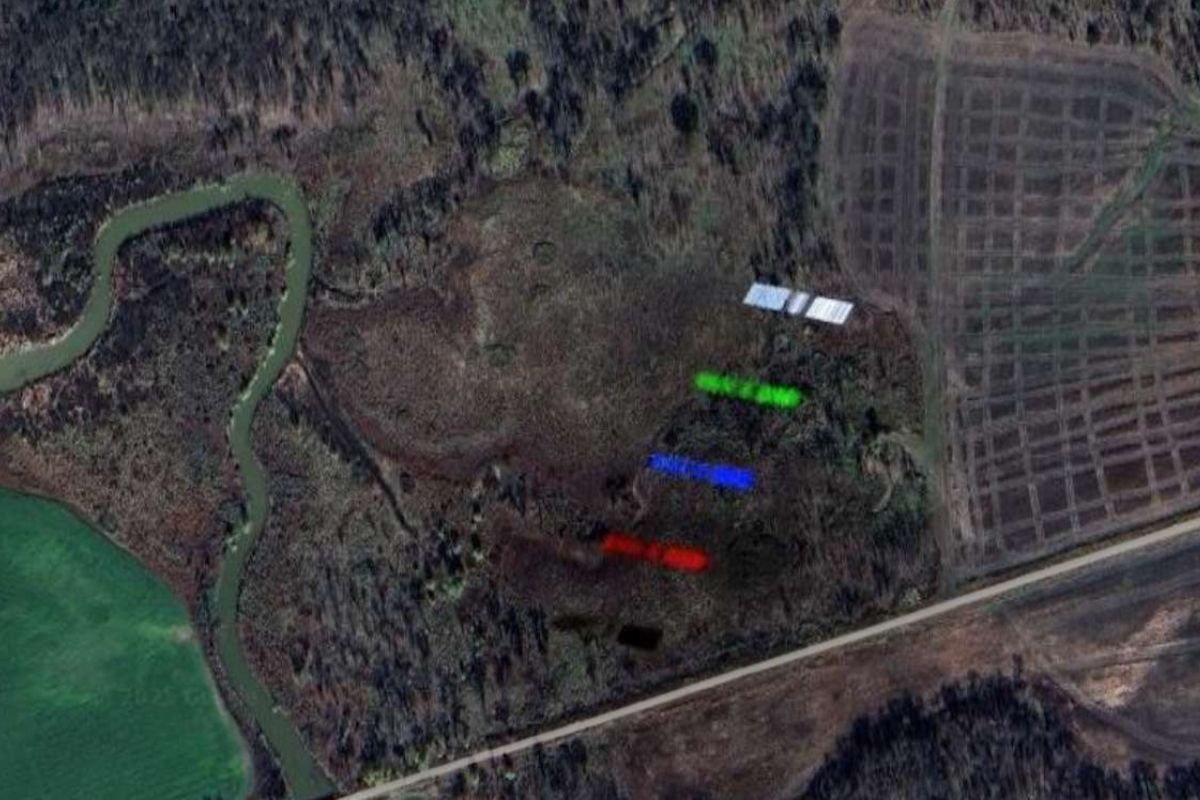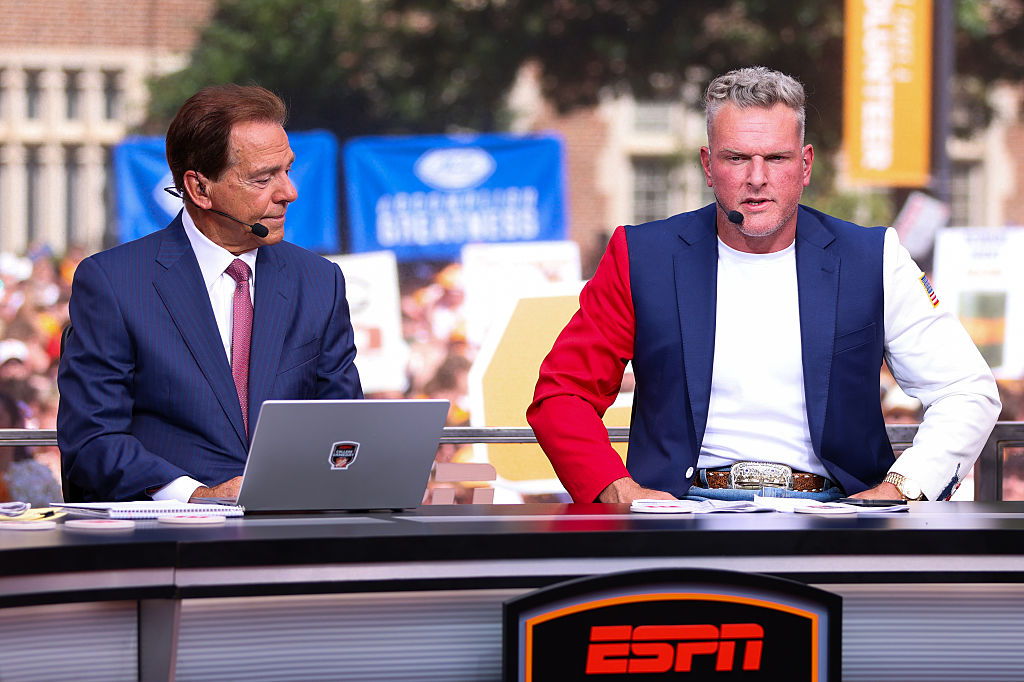Dallas Cowboys owner and general manager Jerry Jones voiced his side of the story during contract negotiations with former Cowboys pass rusher Micah Parsons. Now, after Parsons was traded to the Green Bay Packers last week and received a monster contract extension, Parsons’ agent, David Mulugheta, is sharing his side of what transpired.
Mulugheta joined ESPN’s “First Take” on Tuesday morning to discuss the negotiations with the Dallas front office.
“I think the most important thing is that Micah wanted to be a Cowboy,” said Mulugheta, president of team sports at Athletes First. “He grew up cheering for the Cowboys, wore the blue and white at Penn State, wore it in the NFL with the Dallas Cowboys. He wanted to be a Cowboy. We did everything we could for him to remain a Cowboy.”
Mulugheta said his agency typically prefers to keep negotiation discussions out of the media spotlight. But Athletes First believed some things deserved clarification after so much information about this one became public.
“If you look at many of these contracts that the Cowboys have done over the past few years, and the recent ones, the guarantees don’t stretch much further than the first new year,” Mulugheta said. “If you look at Micah’s current deal, he has guarantees into four years from now. So again, there are certain things that have been put out in the media to make it look as though Micah turned down a fair or a great deal, but that’s simply not the case.”
“Micah wanted to be a Cowboy. He grew up cheering for the Cowboys.”
David Mulugheta talks about his negotiations with the Cowboys regarding Micah Parsons ✍️ pic.twitter.com/5cXgwDzq71
— First Take (@FirstTake) September 2, 2025
Arguably, the biggest point in question was Jones’ claim that he had offered Parsons a deal in March that would make him the highest-paid non-quarterback in the NFL.
“That’s a loaded question,” Mulugheta said. “From an APY (average per year) standpoint, if you’re just looking at the average that was offered to him, I believe it was $40.5 million was the offer, which would have made him, at the time, from an APY standpoint, the highest paid. That being said, the way the cash flow was structured, over his first three new years, he would not be paid as the highest-paid (non-quarterback) player in the NFL.
“Again, that’s why I say, the devil’s in the details. Another important part of the contract was a four-year deal versus a five-year deal. When you look at that, that fifth new year can be a difference of $30 million or $40 million for the player. If you look at where the pass-rusher market was a year ago, it was at $35 million or so with Nick Bosa. Now, it’s at $47 million in one year with Micah Parsons. Four years from now, where do you think that number is? It’s probably closer to $65 million or $70 million per year, and if we lock in that fifth year, currently at $40 million, just that year alone is worth an additional $30 million to Micah, if not more.”
Mulugheta said the difference between the deal the Cowboys had offered versus what Parsons got from the Packers could be a difference of upwards of $60 million.
Another thing that was murky — with only one side of the story — was the meeting that took place between Jones and Parsons. Jones said that the meeting was where a contract was agreed upon. In his public statement requesting a trade on Aug. 1, Parsons addressed that point briefly, saying that the meeting was advertised to him as a conversation about leadership, not a contract negotiation.
“As far as Micah was concerned, he was out of the country,” Mulugheta said. “He got a call from Jerry’s assistant and was asked to come in to meet about leadership. So, when he got back from his vacation, he came in and he gave him a call and said that he was back and he was ready to meet. At some point during that meeting that was represented to him (as one that) was going to be about leadership, it turned into contract talk.
“If you’re a 25-year-old football player, and your boss, who happens to be the most powerful person in the NFL, starts talking about contracts, it’s hard for you to end that conversation. So, they had a conversation. Micah nodded his head out of respect. Obviously, there’s a power dynamic that’s a little different there. One guy is the owner of the team, and the GM, and the other one is Micah Parsons, who is a young, 25-year-old football player. I’m not sure if there was a miscommunication there by the time Micah walked out, but at no point did Micah believe that he was negotiating a contract.”
At one point, Jones made a comment that when the Cowboys tried to send Mulugheta a completed contract, Mulugheta told the Cowboys to “stick it up their ass.” Mulugheta said that terminology wasn’t used and clarified how it went from their side.
“It was a misrepresentation of what I said,” Mulugheta said. “What I did tell them was if they believed that the contract was already finalized and they were sending it over to me to be rubber stamped, then they probably shouldn’t send it over.”
“At no point did Micah believe that he was negotiating a contract.”
David Mulugheta on what transpired between Jerry Jones and Micah Parsons 👀 pic.twitter.com/zHqvflKxEo
— First Take (@FirstTake) September 2, 2025
The messy nature of the negotiations raised questions about how this may impact future negotiations between other Mulugheta clients and the Cowboys. That client list includes receiver George Pickens, whom the Cowboys traded for this offseason and is entering the final year of his rookie deal.
“There’s nothing personal here,” Mulugheta said. “It’s a business transaction as far as the contract is concerned. If George Pickens does what we expect him to do, which is be one of the best receivers in the NFL this year, we’ll have those conversations with the Cowboys. And if they’re open to having that dialogue with us, and negotiating a long-term deal, then we’d love for George Pickens to be a star with a star on his helmet. But if that’s not the case, then obviously we’ll see what else is out there for him. But again, this is not going to affect any negotiations moving forward for us.”
Mulugheta also said that Parsons did not intend to sit out games this season if an extension wasn’t reached and Parsons had to play on the fifth-year option. Mulugheta said Parsons’ back injury is a legitimate ailment for which he’s taking medicine — not a cover for a contract dispute — and he intended to get it further examined and play when the season began.
“Micah loves the game too much,” Mulugheta said. “He was going to play no matter what. … He had a real injury, but at no point did he plan on that keeping him off the field. The Cowboys were never told that he would not play. He always intended to play football. He was going to be on the field Thursday to play against the (Philadelphia) Eagles.”
One of the main things that led to the divorce between the Cowboys and Parsons was how the two sides viewed the March meeting between Parsons and Jones. Jones viewed it as a contract negotiation, while Parsons and his camp did not.
“To expect somebody like Micah Parsons to be one of the best defenders in the NFL, and also a great lawyer when it comes to contracts, I think, is a bit unfair,” Mulugheta said. “His job is to go out there and chase quarterbacks, and our job is to go out there and chase commas for him. So, I’m not sure exactly why it went this way, but we were always prepared and open to negotiate a contract with the Jones family.”
(Photo: Kevin Jairaj / Imagn Images)

